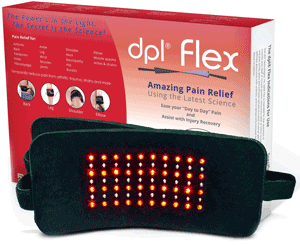I always found the sun and heat of summer actually improved the condition of my skin. Whereas winter, with its drying wind and cold temperatures, made my breakouts more severe and more frequent.
If this is something you’ve observed as well – maybe only casually – you can start to make progress with clearing your acne by “recreating” the effects of the season in which your skin looks best.
Acne in the summer
Generally speaking, unless you live in the UK, summer weather consists of sunshine, hotter weather and depending on your local climate, humidity.
And sunshine is good. Sunshine massively ramps up your skin’s production of vitamin D, which can dramatically reduce your skin’s requirement for sebum and make your skin less oily, reducing breakouts.
As long as you don’t burn, twenty minutes of direct sunshine per day will give you much more vitamin D than you can get from a supplement.
As an added benefit, if you’re the right skin type, spending time outside can give you a nice healthy-looking tan. Everybody looks better with a bit of a tan, and it can make those annoying red marks left by old acne much less noticeable.
If you’re anything like me, it’s impossible to sit still for two minutes when the sun’s out. I’m playing sport, doing DIY in the garden, hiking, biking, and generally making a nuisance of myself by ruining everyone else’s peaceful sunny afternoons.
All of which makes one hot and sweaty. Now, there’s nothing inherently wrong with sweat – and indeed, I did the Caveman Regimen for a month several years ago during hot weather and suffered no ill effects. But sweat can lead to irritation for those prone to acne, and if this is you you’ll need to make sure you’re washing your face and hair up to twice a day with cool water.
However, it’s not all fun and games. You have to make sure you wear sunscreen (here’s how to choose the right one) and be very careful to avoid sunburn if you have acne prone skin – the irritation from burnt skin tends to lead to breakouts up to two weeks after your sunscreen lapse.
How to recreate summer all year round
One of the best ways of recreating the beneficial effects of sunlight all year round is by taking a vitamin D supplement every day. This ensures that you get a consistent level of vitamin D, whether the sun’s shining or not.
Living anywhere in the northern latitudes means that for at least half the year, the sun isn’t strong enough for your skin to produce vitamin D at all – even when it’s a cloudless day.
And because vitamin D is rarely found in foods (unless you happen to be a fan of fish liver…) it’s important to supplement.
I currently take between 1,000 and 4,000 IU’s per day of vitamin D3, ramping up my intake in winter and decreasing it in summer when I make sure spend as much time out of doors as I can. Doing this was one of the first minor breakthroughs I made in reducing my skin’s oil production and treating my acne.
As well as this, if you find your skin is drying out too much during the winter, a moisturizer might help, and if you can afford to you could possibly even install a humidifier.
Acne in the winter
The reason winter is such a crappy time to have acne is the dry, cold air.
I don’t tend to advocate many topical treatments for acne, either – facewashes, soaps, cleansers, etc – because I think the whole industry is selling you a problem, not a solution. Our skin is perfectly well equipped to keep itself clean and clear if we just let it get on with it in its own way. The Caveman Regimen proved this to be the case, for me at least.
Generally speaking, unless it’s something incredibly gentle like Cetaphil, cleansers are very harsh to the skin. They cause irritation, dryness, cracking and they strip away your natural acid mantle barrier layer, which is your skin’s natural defense against infection, acne bacteria and pollution.
In the winter it’s even more important to avoid harsh products, since your skin is already likely to be dry. Cold winds strip the moisture from your skin almost as effectively as soap, and this leaves your skin vulnerable to P. acnes bacteria and breakouts.
Skin cells also die and harden faster in the cold air – faster than your skin can slough them off, and when these hard, dead cells mix with sebum and sweat they can clog your pores.
All in all, winter tends to suck when you have acne.
How to recreate winter all year round
This is probably likely to apply to less of you, but if you find yourself breaking out more in the heat of summer than the dryness and coldness of winter then here are a couple of ideas which might help.
- If it’s the humidity which kills your skin – you’ve guessed it, a de-humidifier can help. Because the majority of people suffer worse with humidity than with dry air, dehumidifiers are much more common and therefore, significantly cheaper than their humidifying counterparts.
- Washing your skin and hair with cold water is another way of keeping your skin from over-producing oil in the summer.
I only ever use cold water – for showering and shaving – and my skin looks better for it. I’ve written about the benefits of cold water a lot already so check out those two posts for more.
Confounding factors
Of course, our lives and lifestyles can change with the seasons, so it’s not necessarily the climate which causes your skin to change throughout the year.
There can be any number of confounding factors – the festive season, starting college again, changing work schedules, more and less stressful times, the different foods on offer.
So just because you notice your acne flaring up and calming down, don’t assume it’s all weather related.
But if it your acne does get better for half the year, you can reasonably assume that the climate plays a role and take some of the above steps to alleviate acne in your worst season.
Got any more suggestions? Feel free to add your comments in the section below.


